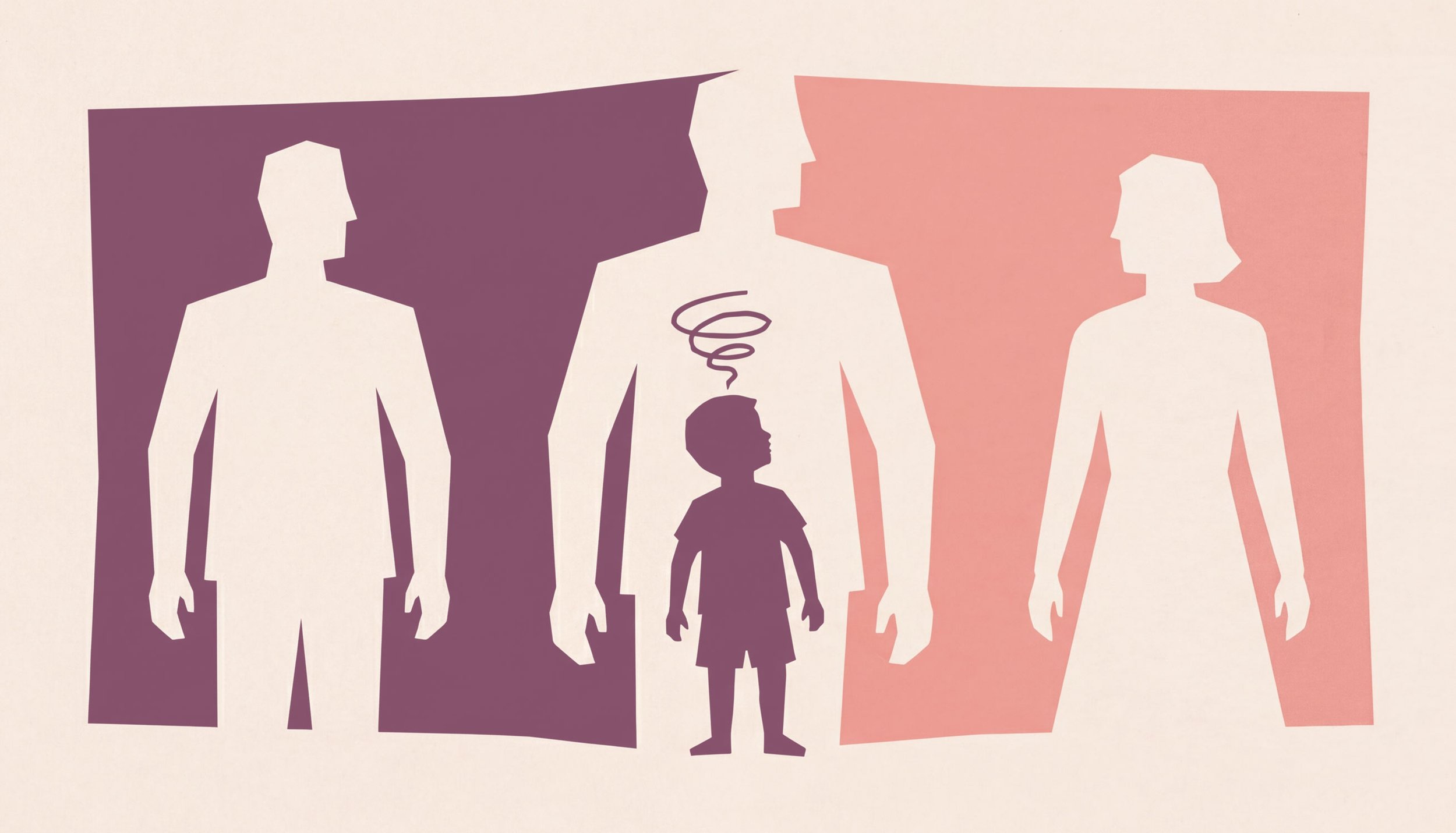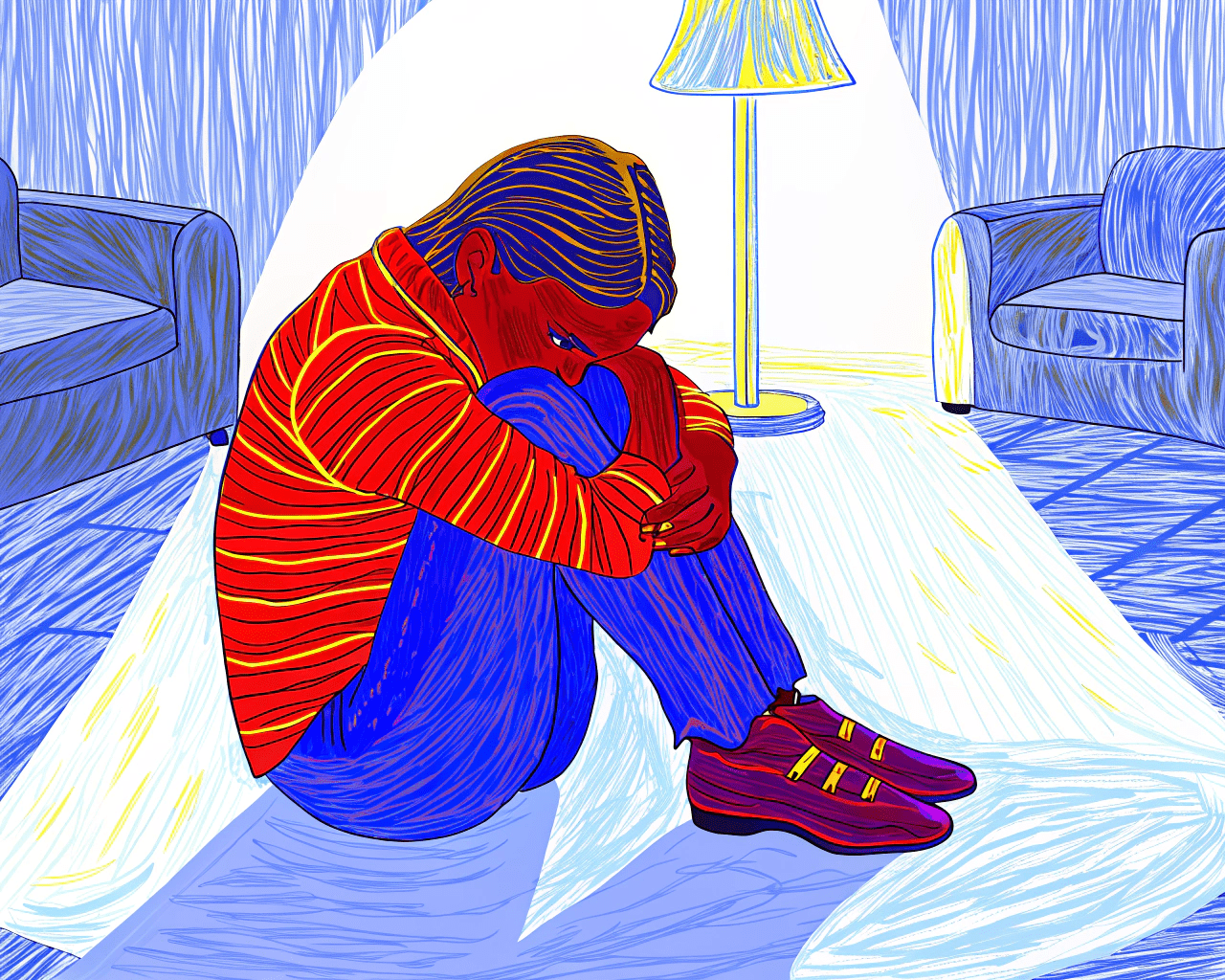Insights and Inspiration for Healing and Growth
Understanding Grief, Trauma, and Emotional Wellness

Coping With Pet Loss: Why It Hurts and Why It Matters
Losing a pet can be one of the most painful forms of grief, yet it is often misunderstood or minimized. If you are coping with pet loss and feeling overwhelmed by sadness, guilt, or emptiness, you are not alone. This kind of grief reflects a deep bond and deserves care, understanding, and support.

Signs Childhood Trauma Is Affecting Adult Relationships
Childhood trauma often shows up in adult relationships in subtle but powerful ways. From fear of abandonment to difficulty trusting others, these patterns can affect emotional well-being long after childhood ends. Therapy can support the healing process and help build resilience and healthier connections.

Recognizing the Hidden Signs of Depression
The holidays often bring families together, but they can also reveal struggles that have been quietly unfolding. Depression doesn’t always look like sadness, and it’s easy to mistake the signs for stress or exhaustion. Learning what to notice and when to seek help can support long-term emotional well-being.

Healing from Childhood Trauma: Strategies to move forward
Healing from childhood trauma is a deeply personal journey, but it doesn’t have to be walked alone. This post explores how trauma affects you in adulthood and offers practical, compassionate strategies to support your healing process, strengthen resilience, and rebuild emotional well-being.

Overcoming Burnout and Overwhelm: Strategies for Self-Care
Burnout doesn’t show up overnight—it sneaks in through long days, constant stress, and a work-life balance that’s hanging on by a thread. If you’re feeling overwhelmed, stretched thin, or running on caffeine and sheer willpower, you’re not alone. In this guide, you’ll learn simple, realistic stress management tips to protect your mental health, rebuild your energy, and bring more self-care back into your daily life.

Growing Up Around Domestic Violence: Breaking the Cycle
Growing up in a home with domestic violence can shape how you see yourself, others, and the world. This post explores the lasting emotional impact, how it shows up in adulthood, and how therapy—especially EMDR—can help you finally feel safe in your own life.

It’s Not You, It’s Your Family: Dysfunctional Family wounds
Growing up in a dysfunctional family can quietly shape how you see yourself—often in ways you don’t realize until adulthood. This post explores how family-of-origin dynamics can lead to low self-esteem and how therapy can help you rebuild a stronger sense of self.

AI Isn’t Your Therapist: The Dangers of Chatbot Counseling
While AI can offer 24/7 support at the push of a button, leaning too heavily on chatbots for emotional care may backfire, increasing isolation, emotional dependency, and even fueling mental health crises. Here’s why real human connection matters.

5 Reasons Why Self-Pay Therapy Might Be the Best for You.
Thinking about therapy but unsure about using insurance? Here’s the truth: self-pay therapy often gives you more privacy, flexibility, and freedom than you might expect. From keeping your records confidential to allowing personalized care without red tape, discover five reasons why self-pay could be the best investment in your mental health.

The Top 5 Reasons to Try Telehealth Therapy
Telehealth therapy brings expert support right to your screen—no traffic, no waiting rooms, no juggling your schedule like a circus act. Whether you’re working through grief, trauma, anxiety, or depression, online therapy can be just as effective as in-person sessions (and often a lot more convenient).

Healing from Trauma: Transform with EMDR
If you’ve been through something hard—really hard—EMDR therapy might be the thing that finally helps you feel like yourself again. Let’s talk about why it works so well.

Building Better Bonds: How to Nurture Healthy Relationships
Healthy relationships don't just happen—they’re built with intention, boundaries, and a lot of emotional honesty. This post shares simple, therapist-backed ways to cultivate stronger, more fulfilling connections.

The Real Impact of Mental Health Stigma and how to heal.
Mental health stigma is more than just an uncomfortable topic—it’s a real barrier that keeps people from seeking the support they need. In this blog, we explore why stigma still persists, how it impacts those dealing with anxiety, trauma, grief, and depression, and what we can do to create a more supportive, judgment-free path to healing.

Building Resilience and Emotional Well-Being
Resilience isn’t about toughing it out—it’s about learning how to care for yourself, bounce back from emotional stress, and feel more steady in the face of grief, trauma, or everyday chaos. Let’s break it down together.

Knowing When to Let Go: Navigating Necessary Family Cutoffs
Cutting off a family member can feel like the ultimate taboo—but sometimes, it's the most compassionate choice you can make for yourself. This post explores when, why, and how family cutoffs become necessary for emotional healing.

Just Say No: Letting Go of Being a People Pleaser
People-pleasing often begins as a way to feel safe—especially for those who have experienced trauma or loss. It can look like always saying “yes,” avoiding conflict at all costs, or constantly prioritizing others’ needs over your own. Over time, though, this pattern can lead to exhaustion, resentment, and a loss of self. In this post, we’ll explore how people-pleasing develops, how it connects to grief and trauma, and what it looks like to begin choosing yourself with compassion and intention.

How Dysfunctional Family Roles Shape Your Mental Health
Family roles like the Scapegoat, the Golden Child, and the Lost One aren’t just outdated tropes from sitcoms—they shape how we think, feel, and interact with the world. Understanding these roles can help you break free from unhealthy patterns and start healing.

The Many Faces of Grief: Why We Mourn Losses Beyond Death
Grief isn’t only about death. Job loss, breakups, and life changes can trigger deep emotional pain. Learn how online therapy, including EMDR, can help with grief and trauma.

How Trauma Changes the Brain and How You Can Heal
Trauma affects more than just emotions—it changes the way the brain functions, impacting memory, decision-making, and emotional regulation. Understanding these effects can help you regain control and begin the healing process with approaches like EMDR therapy and compassionate support.

Do I Have PTSD? Signs and Symptoms You Shouldn’t Ignore.
Wondering if you have PTSD? You're not alone. PTSD isn’t just for war veterans—it can affect anyone who has experienced trauma. Learn the signs, symptoms, and how therapy, including EMDR, can help you heal.
